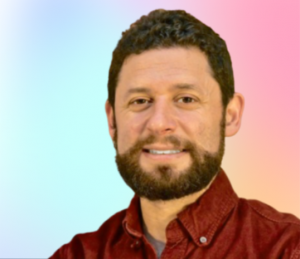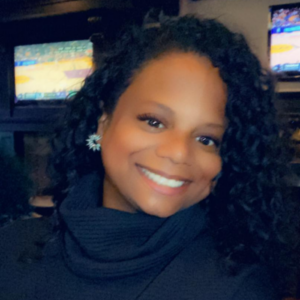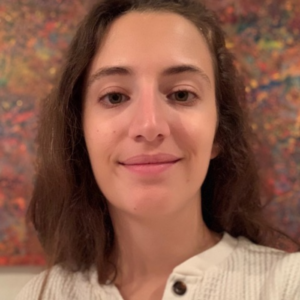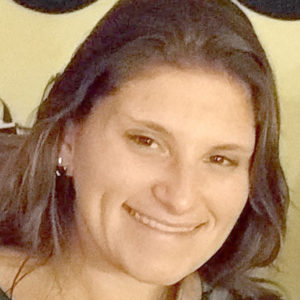Neurodevelopmental Disorders
ONE-TO-ONE, IN-PERSON AT YOUR HOME, OR VIRTUAL NEURODEVELOPMENTAL DISORDER COACHING. PRIVATE PAY TRAVELING TO:
New York City (NYC)
Manhattan
Brooklyn
Queens
Staten Island
Bronx
Long Island (including the Hamptons)
Westchester
New Jersey (NJ)
Connecticut (CT)

Neurodevelopmental disorders are diseases that disrupt the development of the central nervous system. The central nervous system refers to the brain and spinal cord. Any disturbance in their tissues leads to a change in normal brain functioning. This causes various intellectual disabilities. Individuals with neurodevelopmental disorders experience difficulty in their verbal and nonverbal communication. Neurodevelopmental problems can develop in any part of a person’s life, but neurodevelopmental disorders in children are particularly given more focus. A child’s mind is in the development stage. These diseases interfere with normal growth, which can affect social, personal, and academic functioning.
TESTIMONIALS
What Are the Types of Neurodevelopmental Disorders?
The following are examples of neurodevelopmental disorders:
Intellectual Disabilities
Intellectual disability was earlier known as mental retardation. Intellectual disability includes deficiencies in general mental capabilities, including logic, problem-solving, judgment, and learning, to name a few.
People with intellectual disabilities can still learn new skills, but the process is often slow and arduous. In many instances, intellectual deficiency may occur before birth. These include Down syndrome, fetal alcohol syndrome, birth defects, and infection. Some occur when a child is born or shortly after birth.
The following are the signs and symptoms of intellectual disorders:
- Problems in school
- Social and behavioral problems
- Failure to adjust to new situations
- Trouble in speech and language
- Problem in understanding social rules
Global Developmental Delay
It is a group of disorders in which children lag in their physical or mental growth. Children learn to crawl, talk, and do basic things at different paces. Some children learn these things at slower speeds, later than other kids. While some cases may point out a simple difference in the pace of development, these may also be early signs of a developmental delay. Many factors lead to this disorder such as:
- Premature birth
- Malnutrition
- Genetic mutation
- Lack of oxygen during delivery
- Physical abuse
- Drug or alcohol consumption during pregnancy
Talk to their pediatrician if you think your child has a delay in growth. The developmental delay also means that only clinicians can detect an underlying disorder. Once your child is diagnosed, schedule treatments or other early interventions that can help in development.
The following are the signs and symptoms of global developmental delay:
- Trouble learning in school
- A lower score in IQ tests
- A problem in social communication
- Difficulty in remembering things
- Slower development than other children
Communication Disorders
These are the disorders that affect abilities to send, receive and understand concepts. Children also face difficulties in hearing and understanding messages. Every disorder’s linguistic features differ according to the severity and child’s age. There are various groups of communication disorders like speech, language, hearing disorders, etc.
Communication disorders occur due to:
- Abnormal development of brain
- Strokes
- Genetic factors
- Cleft lip or palate
- Brain injuries
The following are the signs and symptoms of communication disorders:
- Repetition of sounds
- Misuse of words
- Difficulty in comprehending words
- Trouble in proper communication
Other Specified Attention-Deficit/Hyperactivity Disorder
Sometimes, the person does not fit the requirements for ADHD or other neurodevelopmental disorders. Clinicians term these instances as other specified attention-deficit/hyperactivity disorder or OS AD/HD, and patients typically feel distressed or have impaired social functions, among others.
The signs and symptoms of other specified attention-deficit/hyperactivity disorders include:
- Inattention or unable to focus
- Not following instructions
- Losing things very frequently
- Lack of attention and making careless mistakes
- Forgetfulness and distractedness
- Hyperactivity, often manifested by:
- Interrupting other activities
- Excessive talking
- Fidgeting, hand tapping
- Over energetic
Developmental Coordination Disorder
Developmental coordination disorder (DCD) is also known as dyspraxia. It is a condition that affects the physical coordination of children. In this condition, the child shows clumsy and awkward behavior in their tasks, including climbing stairs, tying shoelaces, unbuttoning, and buttoning. Children coping with this disorder struggle to perform self-care tasks. Their academic performance also becomes below average despite having fair or above-average intellectual skills. Their motor coordination problems can affect their academic success. Likewise, their social integration and emotional growth suffer a setback. DCD is about three or four times higher in boys than in girls and often considered genetic.
The following are the signs and symptoms of developmental coordination disorder:
- Being very clumsy
- A problem in holding things
- Improper gripping of things
- Dropping things often
- Trouble performing actions like jumping, standing, writing
Unspecified Neurodevelopmental Disorder
It is a diagnosis of DSM-5 assigned to people with neurodevelopmental symptoms that do not meet the diagnostic requirements of neurodevelopmental disorders. It causes disability in social, employment, or other essential functioning areas.
The following are the signs and symptoms of the unspecified neurodevelopmental disorder:
- Low academic achievement
- Could not communicate with peers
- Overreaction to frustration
- Underdeveloped speech or motor skills


DR. RACHEL
Ph.D.

ELISSA
Special Education Teacher

ARMELLE
Master of Arts in Early Childhood Education and Special Education, Bachelor of Arts in Child Study and Human Development

DR. JULIA
Ph.D.

ANTHONY
Master’s in Special Education

GLEN
New York State Licensed Special Education Teacher

MCEDWIN
M.S. in Special Education

JOAO
Academic Coach
**Guarantee: It’s critical that whoever receives our tutoring services connects with the specialist, the specialist has expertise in the area of need, and is available to travel to you. If you are not 100% satisfied with our services, we are 100% committed to finding you the right professional.
What is Autism Spectrum Disorder?
Autism spectrum disorder (ASD) alters an individual’s social, communication, and behavioral patterns. Children with autism often cannot tolerate noise, bright lights, and crowds. This condition often causes irregular sensory and verbal behaviors, which lead to struggles fitting in social situations, unusual movement and speech patterns, and lack of focus or attention, among others.
What is Dyslexia?
Despite having normal or above-average intelligence, individuals with dyslexia struggle with reading. Dyslexia is often genetic i.e. it runs in families. Signs of dyslexia in young children include delays and a lack of phonological sensitivities. These signs correlate with a later diagnosis of dyslexia, which persists throughout puberty and adulthood. These include problems with storytelling, memorization, reading aloud, or learning a new language.
What is Dyscalculia?
Another name for dyscalculia is math dyslexia. People with this condition typically have trouble understanding basic to complex arithmetic. They face trouble with numbers and performing calculations. Dyscalculia tends to run in families. Abnormal brain development, brain injury, and premature birth are some of the factors that can cause dyscalculia. Dyscalculia can appear different at various ages, but it becomes more evident as children grow older. Signs of dyscalculia can emerge and become more noticeable early during the pre-school years.
We work with individuals who have:
We have expertise in:
- Online Tutoring/Coaching
- English, and English Language and Arts (ELA)
- Literature
- Reading (Grades 1-12, and College)
- College Application Essay
- Writing (School-Age, College, and Adult)
- Song, Poetry, and Creative Writing
- Handwriting Tutors
- Math (Grades 1 to 12, College, Adult)
- Pre-Algebra, Algebra I, and Algebra II
- Geometry
- Trigonometry
- Pre-Calculus and Calculus
- Statistics
- Math Word Problems
- Exeter Math
- Biology (High School Biology, and AP Biology)
- Chemistry
- Physics
- Earth Science
- History and Social Studies
- Psychology
- Foreign Languages
- Test Prep (SAT, GRE, SHSAT, ISEE/SSAT, ELA, Regents, TASC, MAP Growth, LOTE Test, GED Test)
- Graduate School & Ph.D. Application Consulting
- Executive Functioning Skills (Grades 4 to 12, college, and adult)
- Adult Dyslexia Tutoring
- Adult ADHD/ADD Coaching
- Study Skills/Test Taking Tutoring
- International Baccalaureate IB Tutors
- Homeschooling
- Digital Literacy
- Computer Science
- Engineering Design
- Python and JavaScript Computer Programming (Coding) Tutoring
- Machine Learning
- Data Analytics, and Data Science
Chat with Themba Tutors Today! Our learning specialists, tutors, and coaches are ready to help you right now!
FREE CONSULTATION!!!
Call: (917) 382-8641, Text: (833) 565-2370
Email: [email protected]
(we respond to email right away!).

